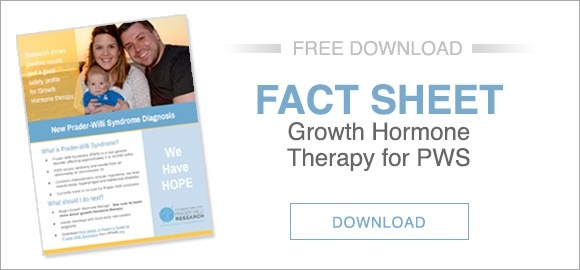Dr. Phillip Lee is an expert on PWS endocrine issues; notably growth hormone therapy in PWS. He wrote a review on the subject in the Growth, Genetics & Hormones journal, an online resource directed to endocrinologists and health professionals that reviews and comments on recent advances in the area of human growth. In his review, (Growth Hormone and Mortality in Prader-Willi Syndrome) Dr. Lee focuses on concerns about reported deaths associated with growth hormone therapy in people with PWS and argues that the information to date does not support a causal role for growth hormone in PWS mortality. He points out the difficulties in assessing whether the deaths reported in association with growth hormone therapy were actually caused by the growth hormone therapy or just coincident. Unfortunately, death rates in individuals with PWS, whether or not they are using growth hormone therapy, are higher than that of the general population. Here, he reviews the known causes of death in those with PWS, and argues that the information to date does not support a causal role for growth hormone in PWS mortality. Given the many proven benefits of growth hormone therapy, and the current lack of conclusive evidence that growth hormone therapy increases mortality in PWS, he concludes that growth hormone therapy should be considered for children with PWS, with appropriate consideration of the individual's clinical situation (ie, obesity, respiratory status, presence of sleep apnea, etc).
As others have reported (see Miller et al), obstructive sleep apnea may be a risk factor for problems in the initial phase of growth hormone therapy, and should be monitored, but Dr. Lee also brings up other causes of illness and death in PWS that are sometimes overlooked. These include complications caused by feeding aspirations (in infants) and bathtub-drowning, even in older individuals with PWS.
This review is available at the GGH website, and should serve as a very useful reference for parents to discuss with their physicians as they are considering growth hormone treatment.
Learn more about the importance of growth hormone therapy for PWS.








